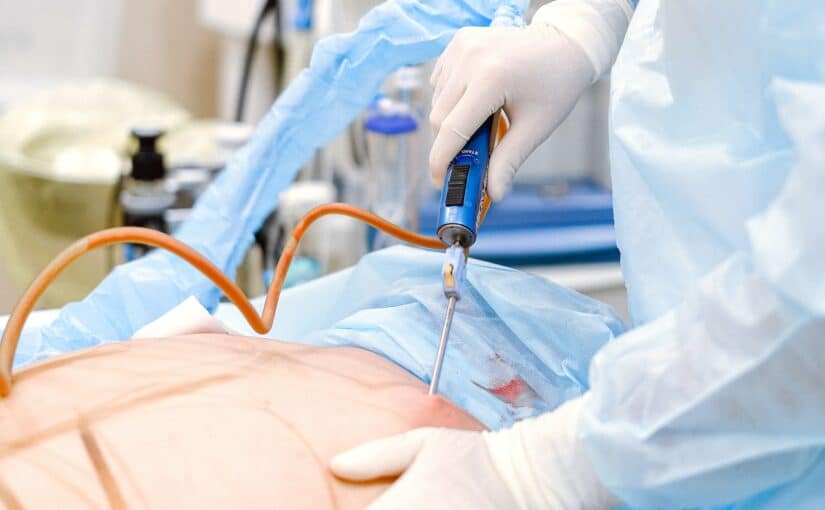Liposuction and age: is there a perfect time for the cosmetic surgery technique, including high volume liposuctions, and how do cosmetic surgeons consider lipolysis? Many believe that youth is the best time for cosmetic enhancements, especially for ideal liposuction candidates considering lipo surgery or high definition liposuction. However, age brings its own advantages. Younger individuals may have more skin elasticity, but older adults often have clearer goals and better decision-making skills.
Understanding when to consider liposuction is crucial. Factors like body composition, health status, and lifestyle play a significant role. It’s not just about looking good; it’s about feeling confident and making informed choices. This post will explore the ideal timing for liposuction based on age, helping you decide if now is your moment or if waiting might be wiser.
Key Takeaways
-
Liposuction can be performed safely at various ages, but it’s essential to consider individual health and lifestyle factors before proceeding.
-
Younger candidates, particularly teens, should have realistic expectations and understand that liposuction is not a weight-loss solution.
-
Older adults may face unique safety concerns; therefore, a thorough medical evaluation is crucial to assess candidacy for the procedure.
-
Skin elasticity plays a significant role in recovery; candidates with good skin tone may experience better results post-surgery.
-
Mental readiness is just as important as physical health; ensure you are emotionally prepared for the changes that liposuction brings.
-
Always consult with a qualified professional to discuss your specific situation and determine the best timing for your liposuction journey.
Understanding Liposuction and Age
Liposuction Process
Liposuction is a body contouring procedure. It removes stubborn fat deposits from specific areas of the body. Many believe it is a weight loss method, but that is not accurate. The primary goal of liposuction is to shape and enhance body contours.
The liposuction process involves several techniques. One popular method is ultrasonic liposuction. This technique uses sound waves to break down fat cells before removal. This process can lead to less trauma in the surrounding tissues. Patients often experience quicker recovery times with this method.
Age Factors
Age can influence how effective liposuction is for individuals. As people age, their skin loses elasticity. This loss can affect how well the skin conforms after fat removal. Younger patients often have more elastic skin, allowing for better results. Older patients may find it harder for their skin to adapt post-procedure.
Physical responsiveness also varies with age. Younger bodies typically recover faster from surgery. They can handle the stress of procedures like liposuction better than older bodies. However, older patients may still achieve satisfactory results depending on their overall health.
Individual Considerations
There is no specific age at which candidacy for liposuction changes. Each case depends on individual factors such as health, skin condition, and lifestyle choices. A detailed consultation with a qualified surgeon helps determine if someone is a good candidate for the procedure.
Surgeons assess various aspects during consultations. They look at medical history, current medications, and any underlying health conditions. These factors are crucial in deciding whether liposuction is appropriate.
Maintaining a healthy lifestyle plays a significant role too. Those who are active and eat well generally see better outcomes from liposuction. Their bodies tend to respond positively to the procedure, regardless of age.
General Age Guidelines for Liposuction
Minimum Age Requirement
Candidates must be at least 18 years old to undergo elective plastic surgery, including liposuction. This age requirement ensures that individuals have reached a level of physical and emotional maturity. Younger individuals may not have fully developed bodies, which can affect the results of the procedure.
Surgeons assess the overall health and body composition of potential patients. They want to ensure that candidates understand the implications of the surgery. A consultation is crucial in this stage. It allows both the patient and surgeon to discuss expectations and any concerns.
No Upper Age Limit
There is no upper age limit for liposuction procedures. Older adults can be excellent candidates as long as they are physically and emotionally prepared. Many older patients seek liposuction to enhance their body contours after weight loss or aging changes.
Surgeons evaluate older patients carefully. They consider factors such as skin elasticity, muscle tone, and overall health. If an individual is in good health, they can safely undergo traditional liposuction procedures or advanced techniques.
Health Considerations
Being in generally good physical health is essential for all liposuction patients, regardless of age. Surgeons look for specific health markers before proceeding with the operation. These include:
-
Stable weight: Candidates should ideally maintain a stable weight for several months.
-
Non-smokers: Smoking can complicate recovery and increase risks during surgery.
-
Controlled medical conditions: Issues like diabetes or heart disease must be well-managed.
Potential patients should prepare for their consultations by reviewing their medical history. Surgeons may request tests to confirm fitness for surgery.

Liposuction Candidacy Changes Over Time
Liposuction candidacy can change as individuals age. Body composition naturally shifts over time, affecting fat distribution. Some people find it harder to lose stubborn fat areas even with diet and exercise.
For this reason, many seek liposuction treatment later in life. They hope to achieve a more youthful appearance or regain body confidence after significant weight loss.
Real Patient Experiences
Real liposuction patients often share positive experiences about their journeys. Many report feeling more confident after the procedure. They appreciate improved body shapes and enhanced self-esteem.
Patients frequently express satisfaction with their decision to undergo liposuction. Their stories highlight how age does not define one’s ability to benefit from this procedure.
Special Considerations for Teens
Body Development
Teens must have fully developed bodies before considering liposuction. The body typically reaches full maturity in the late teens to early twenties. This means that individuals under 18 may not be ideal candidates. Liposuction aims to remove fat from specific areas. If a teen’s body is still changing, results may not be stable.
Surgeons often evaluate physical development during consultations. They assess growth patterns and overall health. This evaluation helps determine if liposuction is appropriate. Teens should focus on natural body changes first. Healthy habits like exercise and balanced diets are essential.
Realistic Expectations
Understanding the limitations of liposuction is crucial for teens. This procedure is not a weight-loss solution. It targets localized fat deposits, not overall obesity. Teens should have realistic expectations about what liposuction can achieve.
Many believe liposuction will drastically change their appearance. However, it can only enhance existing features. Surgery cannot replace healthy lifestyle choices. Maintaining a balanced diet and regular exercise remains vital after the procedure.
Parental Consent
Parental consent is necessary for minors seeking liposuction. Parents or guardians must be involved in the decision-making process. They play a critical role in ensuring the teen understands the risks and benefits.
A thorough consultation with a qualified surgeon is also important. Surgeons should explain the procedure in detail. They must address any questions or concerns both the teen and parents may have. This open communication builds trust and ensures informed decisions.
Surgeons often recommend counseling sessions as well. These sessions help teens understand their motivations for surgery. They also prepare them for potential outcomes, both positive and negative.
Options for Men
Men also seek liposuction at younger ages, but similar guidelines apply. They need to ensure their bodies are fully developed before considering this option. Men often target areas like the abdomen and love handles.
The same principles of realistic expectations apply to men as well. Understanding that liposuction enhances body shape rather than creates it is vital.
Safety Concerns for Older Adults
Increased Risks
Older adults face increased risks with any surgery. This includes liposuction. Age affects how the body responds to anesthesia and healing. Recovery times can be much slower for older individuals. Complications like infections or blood clots may also arise more frequently. The body’s ability to heal diminishes with age. Thus, careful consideration is essential.
Medical Evaluation
A comprehensive medical evaluation is critical before undergoing liposuction. This assessment should include a review of the patient’s overall health. Doctors will check for any underlying issues. Conditions like heart disease, diabetes, or respiratory problems can increase surgical risks. A thorough examination helps ensure that patients are fit for surgery. It also allows doctors to tailor the procedure to each individual’s needs.
General Health Importance
Good general health is vital for older adults considering liposuction. Patients should be free from serious medical conditions. Those who smoke or have chronic illnesses may face greater challenges during recovery. Maintaining a healthy lifestyle can improve surgical outcomes. A balanced diet and regular exercise contribute positively to overall health.
Consultation with Experts
Consulting with experienced surgeons is essential. They can provide valuable insights into the risks and benefits of liposuction at an older age. Surgeons will discuss what to expect before, during, and after the procedure. They will help set realistic goals and expectations based on age and health status.
Emotional Considerations
Older adults may have emotional factors influencing their decision. Body image issues can affect self-esteem at any age. However, older individuals might feel pressure to maintain youthfulness. Understanding these feelings is crucial in the decision-making process. Support from family and friends can aid in coping with these emotions.
Post-Operative Care
Post-operative care plays a significant role in recovery for older adults. Following surgeon instructions can minimize complications. Regular follow-ups ensure that healing progresses as expected. Adequate rest and hydration are important components of recovery.
Health and Lifestyle Factors
Nonsmoking Importance
Being a nonsmoker is crucial for anyone considering liposuction. Smoking affects blood flow and healing. It can lead to complications during and after the procedure. Those who smoke should be willing to quit before the surgery. Quitting improves recovery time and results. Studies show that smokers face higher risks of infection and delayed healing. This makes it essential to prioritize a smoke-free lifestyle.
Ideal BMI Range
Candidates for liposuction should aim to be close to their ideal Body Mass Index (BMI). The best results occur when individuals are at or near their target weight. A BMI between 18.5 and 24.9 is considered healthy for most adults. Being within this range helps ensure the procedure effectively targets stubborn fat areas. Those with a high BMI may not achieve the desired outcomes. Liposuction is not a weight-loss solution, but a body contouring method. Maintaining a stable weight before the procedure is vital for success.
Pre and Postoperative Directions
Following pre and postoperative directions is necessary for optimal results. Surgeons provide specific guidelines to prepare for surgery. These may include dietary changes, exercise recommendations, and medication adjustments. Adhering to these instructions can reduce risks of complications.
After surgery, patients must follow care instructions closely. This includes managing pain, keeping incisions clean, and attending follow-up appointments. Proper care supports healing and helps maintain results.
Lifestyle Changes
Making lifestyle changes can enhance the effectiveness of liposuction. Regular exercise and a balanced diet are key components of maintaining weight after the procedure. Individuals should focus on building muscle and burning fat through physical activity. This not only aids in recovery but also promotes long-term health.
Healthy habits can prevent weight gain post-surgery. Many people experience weight fluctuations after liposuction if they do not adopt a healthier lifestyle. Staying active helps keep results intact while improving overall well-being.
Emotional Readiness
Individuals should assess their emotional readiness for liposuction as well. It’s essential to have realistic expectations about the procedure’s outcomes. Understanding that liposuction shapes the body but does not replace healthy habits is critical.
Support from friends or family can also play a role in recovery. Emotional support can help individuals stay committed to their new lifestyle choices.
Importance of Physical and Mental Readiness
Physical Fitness
Candidates must be physically fit before undergoing liposuction. Being in good health helps reduce surgery risks. Doctors often recommend maintaining a stable weight for at least six months prior to the procedure. This ensures that the body is ready for the changes that come with liposuction.
A healthy diet and regular exercise can improve overall fitness. These habits also promote faster recovery. Individuals should aim for a balanced lifestyle before considering surgery.
Mental Preparation
Mental readiness is just as crucial as physical fitness. Candidates need to understand what liposuction entails. It involves surgical procedures, anesthesia, and recovery time. Many people may feel anxious or uncertain. Addressing these feelings is important.
Seeking counseling or talking to a trusted friend can help ease anxiety. Understanding the reasons behind the desire for surgery can clarify expectations. Candidates should ask themselves if they are pursuing liposuction for personal reasons or external pressures.
Support System
Having a strong support system during recovery is essential. Friends and family play a significant role in emotional well-being post-surgery. They can assist with daily tasks during the initial recovery phase.
Supportive individuals can help manage pain and discomfort after surgery. Their presence can also boost morale, making the process smoother. It’s beneficial to have someone available for at least the first few days after the procedure.
Realistic Expectations
Candidates must have realistic expectations about results and recovery time. Liposuction is not a weight-loss solution; rather, it shapes specific areas of the body. Understanding this distinction can prevent disappointment.
Results take time to become visible. Swelling and bruising are common after surgery, which may last several weeks. Patience is key during this period.
Discussing goals with a qualified surgeon can clarify what is achievable. Surgeons can provide insights into expected outcomes based on individual circumstances.
Skin Elasticity and Recovery
Younger Patients
Younger individuals often experience better skin elasticity. This quality helps the skin bounce back after procedures like liposuction. A more elastic surface allows for a smoother recovery. The skin can adjust to new contours more effectively.
In younger patients, the body’s healing processes are generally faster. Cells regenerate quickly, which aids in recovery. This means less downtime for them. They are more likely to achieve optimal results from cosmetic procedures.
Older Patients
Older adults face different challenges. Reduced skin elasticity is common with age. As a result, their recovery times can be longer. The skin may not conform as well to the body’s new shape. Consequently, this can lead to uneven results post-surgery.
Aging decreases collagen production, which affects skin firmness. This reduction makes it harder for older patients to achieve smooth outcomes. Their bodies take more time to heal after cosmetic surgery.
Impact on Results
Skin elasticity plays a crucial role in the success of liposuction and other cosmetic surgeries. Good elasticity ensures that the skin lays flat against the underlying tissues after fat removal. This aspect is vital for achieving a natural appearance.
Poor elasticity can cause sagging or irregularities in the skin surface. These issues may require additional procedures to correct them later on. Patients should understand these factors before deciding on surgery.
Recovery Considerations
Recovery involves several factors beyond just age and skin elasticity. Individual health plays a significant role too. Those in good health typically recover faster than those with underlying conditions.
Surgeons often evaluate a patient’s overall condition before proceeding with liposuction. They consider lifestyle factors such as diet and exercise habits as well. These elements can impact both recovery and the final results.
Patients should also follow post-operative care instructions closely. Adhering to guidelines can enhance healing and improve outcomes. For instance, staying hydrated and avoiding smoking are critical steps.
Emotional Factors
Emotional readiness is another important aspect of recovery. Anxiety or stress can hinder the healing process. Younger individuals might handle these feelings differently than older adults.
Support systems matter during recovery too. Friends and family can play a vital role in emotional support post-surgery.
Setting Realistic Expectations
Understanding Liposuction
Liposuction is often misunderstood. Many people think it is a quick fix for weight loss. This belief can lead to disappointment. It is crucial to recognize that liposuction is not a weight loss solution. Instead, it is designed for body contouring. Candidates should aim to be within their target weight before considering the procedure.
Goals and Outcomes
Setting realistic goals is vital for anyone considering liposuction. Candidates must understand what the procedure can and cannot do. Ideal candidates have specific areas they want to improve. These may include stubborn fat deposits that diet and exercise have not addressed. However, they should not expect to achieve dramatic changes in their overall body size.
Many patients desire a more sculpted appearance rather than significant weight loss. They should visualize their ideal body shape and communicate this with their surgeon. A clear understanding will help both the patient and the surgeon align their expectations.
Experience Matters
The experience of the surgeon plays a significant role in achieving desired results. An experienced surgeon understands how to contour the body effectively. They can provide insights into what is achievable based on individual anatomy. Patients should research potential surgeons thoroughly before making a decision.
Surgeons often review past patient experiences during consultations. These experiences can provide insight into what can be expected from the procedure. Previous patients may share their outcomes, recovery times, and satisfaction levels.
Multiple Sessions
e candidates may require multiple sessions to achieve optimal results. Liposuction can remove only a limited amount of fat at one time. Surgeons usually recommend waiting several months between procedures for safety reasons. This approach allows the body to heal properly.
Patients should discuss this possibility with their surgeon during consultations. Understanding that multiple sessions may be necessary helps manage expectations. It also allows for better planning regarding costs and recovery times.
Medical Evaluation and Candidacy
Importance of Evaluation
A thorough medical evaluation is essential for anyone considering liposuction. This assessment helps determine if a person is a good candidate for the procedure. Surgeons look at several factors during this evaluation, including age, weight, and overall health.
Candidates should be in generally good health. They must not have any serious medical conditions that could complicate surgery. For example, heart disease or diabetes may pose risks during the procedure. A detailed discussion about medical history is crucial. This conversation allows the surgeon to understand any underlying issues that could affect recovery.
Discussing Health Conditions
Surgeons require candidates to share their complete medical history. This includes past surgeries, medications, and any chronic conditions. Open communication can significantly impact the success of the surgery. A candidate with a history of blood clotting disorders might need special precautions.
Current health conditions also play a role in determining candidacy. For instance, individuals who smoke may face increased risks during and after the surgery. Smoking can impair healing and lead to complications. Candidates should consider quitting smoking before undergoing liposuction.
Personalized Consultations
Personalized consultations are vital in developing a tailored treatment plan. During this meeting, candidates discuss their goals and expectations with the surgeon. The surgeon evaluates body type, fat distribution, and desired outcomes.
A well-planned consultation identifies realistic goals for each individual. Some candidates may wish to remove stubborn fat from specific areas, while others seek overall body contouring. The surgeon will explain what is achievable based on the candidate’s unique situation.
Surgeons often use technology to help visualize outcomes during consultations. 3D imaging can show potential results based on different techniques. This visual aid helps candidates make informed decisions about their surgery options.
Understanding Surgery Requirements
Candidates must also understand the surgery requirements before proceeding. Liposuction is not a weight-loss solution; it is meant for body contouring. Ideal candidates are usually within 30% of their ideal body weight.
Surgeons recommend maintaining a stable weight for at least six months before surgery. Weight fluctuations can affect results and recovery time. Candidates should also prepare for post-operative care, which includes following specific instructions from the surgeon.
Observaciones Finales
Liposuction can be a game-changer at any age, but timing is crucial. Understanding factors like skin elasticity, health status, and mental readiness helps you make informed decisions. Each age group has unique considerations, from teens to older adults. You must weigh these elements carefully to ensure safety and satisfaction.
Your journey to a better self starts with realistic expectations and thorough medical evaluations. If you’re contemplating liposuction, consult with a qualified professional who understands your needs. Take the leap and invest in yourself today—your future self will thank you!
Frequently Asked Questions
What is liposuction?
Liposuction is a cosmetic procedure that removes excess fat from specific areas of the body. It helps contour and shape the body, enhancing overall appearance.
Is there an ideal age for liposuction?
While there isn’t a perfect age, candidates typically range from late teens to mid-50s. Factors like health, skin elasticity, and personal goals are crucial in determining suitability.
Can teenagers undergo liposuction?
Teens may be considered for liposuction if they have completed physical development and maintain a stable weight. Parental consent and psychological readiness are also important.
Are older adults safe candidates for liposuction?
Older adults can safely undergo liposuction if they are in good health and have realistic expectations. A thorough medical evaluation is essential to assess risks.
How does skin elasticity affect recovery?
Skin elasticity plays a significant role in recovery. Individuals with better elasticity often experience smoother results post-surgery, while those with less may face sagging skin.
What should I expect during a medical evaluation?
During a medical evaluation, your doctor will assess your overall health, discuss your goals, and determine if you are a suitable candidate for liposuction based on various factors.
How can I prepare mentally for liposuction?
Preparing mentally involves setting realistic expectations and understanding the recovery process. Discussing concerns with your surgeon can help alleviate anxiety and ensure you’re ready.





